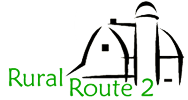A Step-by-Step Guide for Writing Oral Histories
Don’t let those family stories get away! If you take the time now to collect those stories, when your family members pass on — their stories will live on forever.
Although the phrase, “everybody has a story to tell” may sound like a cliche, it’s true.
And after working as a newspaper reporter for nine years, I know that everyone does, indeed, have a story to tell, including your family members.
Think about it.
Do your grandmother and grandfather — mother and father — aunts and uncles — tell stories about the “good old days?”
Do they talk about going to school? The fun they had with friends? Family celebrations and holidays? Picnics on the Fourth of July? Snow that was so deep it covered fences? Pets that were so smart they belonged in the Guinness Book of World Records? Making ice cream? Their parents? Their grandparents?
Have you wanted to write down those stories to share them with other family members and to preserve them for generations to come but don’t how to go about it?
Guess what? You don’t need “literary talent,” special training or special equipment. All you need to preserve those stories and to add an interesting dimension to your genealogy is a list of people to interview, a willingness to listen, a set of questions to ask, a tape recorder and a computer (or even a typewriter would work!).
Here are some tips for gathering and writing your family stories:
1. Decide which people you would like to interview and make a list.
2. Ask for permission to conduct an interview.
3. Set a formal date and time for the interview.
4. Provide a list of questions several days or weeks before the interview.
5. Focus on a single subject or event in each list of questions.
6. Use the “who, what, where, when, how, and why” strategy when formulating your questions.
7. Ask open-ended questions and not “yes or no” or “one word answer” questions.
8. Use a tape recorder to record the interview.
9. Chat about something else for a while if the person you are interviewing seems nervous at the prospect of being tape-recorded.
10. Transcribe the tape and write up your notes after you have finished the interview.
11. Edit the manuscript.
12. Spread out your interviews.
13. Print the stories from your computer or publish them in another way.
Here are some questions to help you get started with your interviews.
(Preserve Your Family History–A Step-by-Step Guide for Writing Oral Histories includes 30 sets of questions, more than 400 in all, on 30 different topics.)
Subject #2: School
1. Where did you go to school when you were growing up?
2. How did you get to school? What route did you take?
3. Tell me about any amusing, interesting or unusual incidents that happened on your way to or from school.
4. Tell me about any amusing, interesting or unusual incidents that happened at school.
5. Tell me about any amusing, interesting or unusual incidents that happened concerning some of your classmates.
6. What clothes did you wear to school? What was your favorite outfit? Why was it your favorite?
7. How many students were in your class? How many students were in the whole school? How many grades?
8. What was your favorite subject? Why?
9. What was your least-favorite subject? Why?
10. Who was your favorite teacher? Why?
11. Who was your least-favorite teacher? Why?
12. Tell me about your best friend.
13. Tell me about your happiest moments in school. What was your best accomplishment?
14. Tell me about your worst moments in school. Did you learn anything from your worst moments?
15. Where did you attend high school?
16. Tell me about any unusual, interesting or amusing incidents that happened in high school.
17. Who was your favorite high school teacher? Why?
18. Who was your least-favorite high school teacher? Why
19. What was your favorite high school subject? Why?
20. What was your least-favorite high school subject? Why?
21. Tell me about your academic achievements. Why were they important to you?
22. Did you play sports in high school? If so, which sports? Was the sport (or sports) important to you? Why or why not?
23. If you played sports, tell me about the best game that you played. Why was it the best?
24. If you played sports, tell me about the worst game that you played. Why was it the worst?
25. Where did you attend college or another post-secondary school (if at all)?
26. Describe the campus.
27. What was your major in college (or another post-secondary school)? Why did you pick that major? When did you graduate?
28. Tell me about any special academic achievements while you were in college. Why were those achievements important to you?
29. What was it like going to that particular school? How many classes did you take each semester? What kinds of classes?
30. Tell me about any extra-curricular activities that you participated in during college or post-secondary school (sports; drama club; school newspaper).
31. Tell me about any unusual, interesting or amusing incidents that happened while you were in college or while you attended a post-secondary school.
32. What advice would you give to students who are in school today (either elementary students, high school students or college)?
***************************
Preserve Your Family History includes step-by-step instructions for conducting interviews as well as 30 sets of questions (more than 400 questions in all) on 30 different topics that you can print out to use “as is” or that you can use to generate your own questions.
|
|
